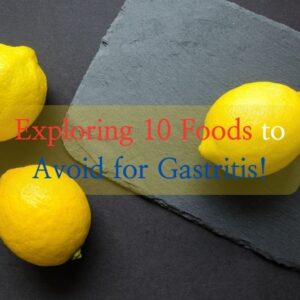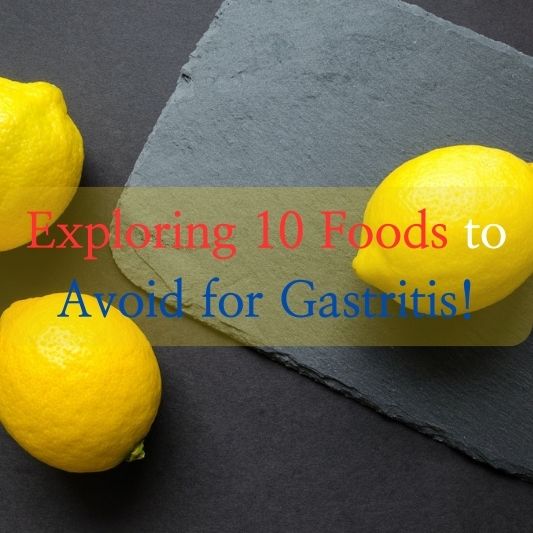Gastritis, often referred to as gastritis in english, is a common gastrointestinal condition that causes inflammation of the stomach lining. It can lead to discomfort, pain, and various digestive issues. One effective way to manage gastritis is by being mindful of your diet. In this article, we will delve into the world of gastritis and discover ten foods that you should avoid to alleviate its symptoms.

Understanding Gastritis
Gastritis occurs when the protective lining of the stomach becomes inflamed or damaged. This can happen due to various factors, including bacterial infections, excessive alcohol consumption, chronic use of non-steroidal anti-inflammatory drugs (NSAIDs), and stress. The symptoms of gastritis can range from mild discomfort to severe pain and may include nausea, vomiting, bloating, and indigestion.
The Role of Diet
Diet plays a crucial role in managing gastritis. Certain foods can exacerbate the condition and increase discomfort, while others can help soothe the stomach lining. Let’s explore the top ten foods to avoid when you have gastritis:
Foods to Avoid gastritis
Spicy Foods
Spicy foods, such as hot peppers and spicy sauces, can irritate the stomach lining and worsen gastritis symptoms. It’s best to steer clear of these fiery delights.
Citrus Fruits
Citrus fruits like oranges, lemons, and grapefruits are highly acidic. Their acidity can trigger stomach inflammation and discomfort in gastritis patients.
Carbonated Drinks
Carbonated beverages, including soda and sparkling water, can increase the production of stomach acid, which is not ideal for gastritis sufferers.
Fried and Fatty Foods
Fried and fatty foods can slow down digestion and may lead to stomach irritation. Opt for leaner alternatives to ease your gastritis symptoms.
Coffee and Caffeine
Caffeine can stimulate the production of stomach acid, potentially aggravating gastritis. Consider switching to decaffeinated options if you’re a coffee lover.
Alcohol
Alcohol can irritate the stomach lining and should be consumed in moderation or avoided entirely if you have gastritis.
Tomatoes and Tomato-Based Products
Tomatoes are acidic and can contribute to stomach discomfort. Avoid tomato-based sauces, ketchup, and tomato-rich dishes.
Spicy Peppers
Similar to spicy foods, hot peppers like jalapeños and chili peppers should be avoided to prevent further irritation.
Chocolate
Chocolate contains caffeine and can relax the lower esophageal sphincter, allowing stomach acid to flow back into the esophagus, leading to discomfort.
Dairy Products
Dairy products, especially whole milk and cheese, can increase stomach acid production, potentially exacerbating gastritis symptoms.
Conclusion
In conclusion, managing gastritis involves making smart dietary choices. Avoiding foods that can irritate the stomach lining is essential for alleviating symptoms and promoting healing. Remember to consult with a healthcare professional for personalized advice on managing your gastritis.
FAQs
1. Can gastritis be cured with diet alone?
While diet plays a crucial role in managing gastritis, it may not cure the condition entirely. Consult with a healthcare provider for a comprehensive treatment plan.
2. Are there any foods that can help soothe gastritis symptoms?
Yes, some foods can help soothe gastritis symptoms, including oatmeal, yogurt, and bananas. However, individual responses may vary.
3. How can I reduce stress to prevent gastritis flare-ups?
Engaging in relaxation techniques such as yoga, meditation, and deep breathing exercises can help reduce stress and minimize gastritis symptoms.
4. Is it safe to take over-the-counter antacids for gastritis?
Over-the-counter antacids can provide temporary relief from gastritis symptoms but should be used as directed and under the guidance of a healthcare professional.
5. Can gastritis lead to more severe digestive conditions?
Untreated gastritis can potentially lead to complications such as stomach ulcers or bleeding. It’s crucial to seek medical advice for proper management.
Find out the price of gastrointestinal health supplements on iHub!
Find out how to diet vitamin B!
